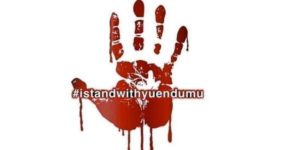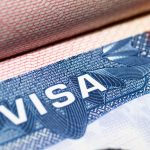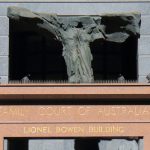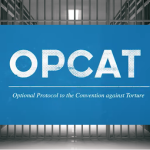Police Allegedly Shot Dead an Unarmed Teen

At around 7.15 pm on Saturday 9 November 2019, a Northern Territory constable allegedly gunned down an unarmed Warlpiri teenager. The incident occurred as two police officers entered the home of 19-year-old Kumanjayi Walker in relation to claims he’d breached his suspended sentence.
After the shooting, Kumanjayi was taken to the police station, which was then locked down due to fear of reprisals. There were no medical staff on site. And despite Walker passing away before an ambulance arrived an hour later, his family weren’t told of his death for another nine hours.
NT police constable Zach Rolfe was subsequently charged with Kumanjayi’s murder. This is significant, as it’s the first time an Australian police officer has been charged with murder over a First Nations death in custody since the colonisation of the continent began 231 years ago.
However, Rolfe, a 28-year-old Australian army veteran, was released on bail soon after the charge was laid, and he’s been suspended from work with pay, which has left many to ask whether it’s feasible an Indigenous person charged with murder would have been released from custody.
The killing of Kumanjayi happened in the town of Yuendumu: a remote community on the edge of the Tanami desert. It’s become what’s termed a hub town since the imposition of the Intervention in 2007. And locals see a direct link between this draconian policy and the recent tragedy.
A community in shock
“I attended. There was a bit of tension, but in the end, it was very peaceful,” said Otto Jungarrayi Sims, following an Alice Springs rally. More than 1,000 people marched through the central Australian town on Thursday protesting the alleged gunning down of the teenager.
Many families from Yuendumu travelled the close to 300 kilometres to Alice to join the demonstration. Mr Sims, a resident of the remote town, told Sydney Criminal Lawyers that he was speaking on behalf of his community, as it’s going through trauma.
The Warlpiri elder claims that the allegations about Mr Walker somehow provoking police were false. And he believes that the officers handled the matter poorly. “It’s bad how they came around,” he explained, “shooting a blackfella. Really bad.”
“A black man got shot,” the Warlpiri elder continued. “I do not know what the reason was. All we know is it happened. An Indigenous person got shot.”
In his own home
At a press conference on Sunday morning, NT police acting deputy commissioner Michael White told reporters that Kumanjayi lunged at the two officers, brandishing an unidentified weapon and injured one of them. However, local eyewitnesses state that the 19-year-old was unarmed.
“Regardless of what happened there’s never a justification for shooting an unarmed teenager three times,” said Olivia Nigro, a social justice advocate, who’s been working with the Warlpiri elders in the Yuendumu community for many years.
“There are many processes that police can engage in before using a fatal weapon on a civilian,” she continued, and went on to point out that a police liaison officer and closely stationed night patrol staff were ignored, and so too were many cultural protocols that should have been in play.
Following the incident, police took Kumanjayi into the station, locked themselves within it and turned off the interior lights. And when relatives gathered out the front to inquiry about the condition of their loved one, they were ignored.
“Renowned for racist policing”
The Northern Territory Police Association published a statement about Rolfe on Thursday. It says that the “decorated member” will be pleading not guilty to murder and “will vigorously contest the charge”. It also stated that he and his family will have the complete support of the association.
“The murder charge laid against Rolfe is necessary and came in the wake of national protests that drew international attention to the murder,” Nigro emphasised. And she raised concerns about media narratives that have painted Rolfe as a “fallen hero”, subjected to false accounts of events. And she questioned whether a conviction will ever be forthcoming.
Nigro also warned of more sinister support that’s coming from members in the force. The Alice Springs resident said there are now reports of police threatening reprisals. And she’s also aware of an increased police presence on the ground.
“Whether it is formal or informal,” the activist added, “the response of the NT police is ultimately to intensify presence and control across the Central Desert.”
No isolated incident
Ms Nigro stressed the importance of seeing Kumanjayi’s alleged killing in the context of the Intervention, with “13 years of intensifying police surveillance and control”. In June 2007, the Howard government declared an emergency in the NT and sent 600 troops into remote Aboriginal communities.
“The police are engaging with this matter as in times of warfare,” Nigro continued. “That battle has been going on since 1788. And it’s being remembered clearly in the parallels of this situation with the Coniston Massacre.”
The 1928 Coniston Massacre took place at a cattle station not far from Yuendumu. Amongst those killed were Warlpiri people. That tragedy involved a number of attacks on First Nations people by a mounted party led by police constable George Murray, who was also an army veteran.
“So many people in the community that I’ve been in contact with – family members, elders – are talking about Coniston,” Ms Nigro concluded.
“And they’re saying, ‘We are not just grieving and in agony over Kumanjayi. We are hurting and in agony over all of our people and family members who have been shot from Coniston until now.’ And that’s palpable.”







